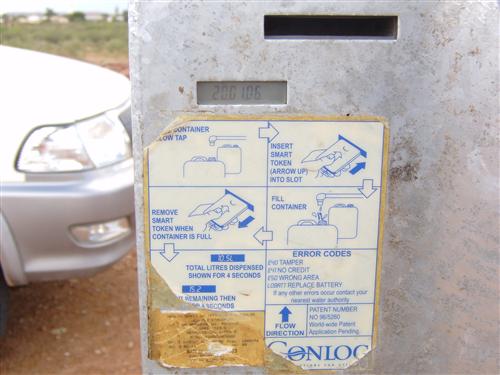With the devolution of responsibilities to the lowest appropriate level, involvement of communities in managing water resources has become crucial to the success of any water supply scheme.
Botswana
The Water Act provides some mechanisms for stakeholder participation within the water sector in Botswana (GTZ 2005); however, stakeholder involvement is limited due to the lack of institutional structures for participation. Under the Settlement Policy of Botswana, there is a provision for establishing Committees, such as, the Village Development Committees which determine the location of water facilities (GTZ 2005). Water committees are also now being formed for both urban areas (major population concentrations), as well as in the villages as part of the National Development Plans.
According to an assessment of stakeholder involvement within the basin conducted by GTZ (2005), Botswana has “not taken meaningful steps to assist in the setting up of stakeholder based institutions to partner with the state in water management”. The assessment concludes that stakeholder participation needs to be formalised and institutionalised within Botswana before the benefits of increased involvement will be realised.
Lesotho
In Lesotho community-based formal structures include the kgotla, which is in essence a community meeting forum (ORASECOM 2007j). Disputes over water supply or water requirements in the rural areas may be addressed in such forums. In Lesotho, the new Lesotho Water and Sanitation Policy of 2007 emphasises the importance of stakeholder involvement and the devolution of certain water management activities to local councils and community based organisations.
Namibia
In Namibia the Water and Sanitation Policy of 1993 outlined a cross-cutting objective of ensuring communities determine appropriate solutions and services levels for water supplies. The strategy for achieving this is through community based water management, a decentralised participatory approach to ensuring the sustainable and efficient supply of water to rural communal areas of Namibia (Ministry of Agriculture, Water and Forestry 2009).
To undertake community based management (CBM) effectively, the community structures are based on Water Point Associations (WPAs) with an executive body called Water Point Committee (WPC). These voluntary institutions are established to ensure sustainable management and use of water points, the fair distribution of water to members and recovery of the costs of operating and maintaining the water point. Over 1 000 water point committees have been established and trained since the strategy was formulated in 1997 (ORASECOM 2007j)
At the basin level, Basin Management Committees (BMCs) have been identified as the most appropriate means for government and communities to work together to promote integrated water resources management. Eleven major river basins were identified by the Department of Water Affairs. The Ministry of Agriculture, Water and Forestry developed a guidebook for establishing BMCs for integrated land and water resources management in a river basin.
Click here to view the Basin Management Approach Guidebook

Prepaid water points are managed at the local level in Namibia.
Source:DRFN 2004
( click to enlarge )
Box: Stakeholder Particpation in the Ephemeral River Basins in SADC Project
The Ephemeral River Basins in SADC project (ERB-SADC) is designed to promote sustainable and equitable use of water through integrated resource management in ephemeral rivers in Southern Africa. The ERB-SADC project investigates the potential for integrated resource management in the Boteti River in Botswana, the Buffels River in South Africa and the Orange-Fish River in Namibia.
In the Orange-Fish River, the ERB-SADC project is supporting the establishment of a basin management committee that is based on the Forum for Integrated Resource Management (FIRM) approach, developed by the Desert Research Foundation of Namibia. The FIRM approach places stakeholders at the center of all resource management decisions, which can take the form of a local community in a community-based organisation, or the service providers in a basin management committee. Once issues and development goals are identified, stakeholders conduct joint planning of activities to reach the goals. This gives the FIRM ownership of its own development, and service providers are held accountable to deliver according to plans.
Source: Ephemeral River Basins in SADC project website, 2009
South Africa
In South Africa, community-based Catchment Management Agencies (CMAs) are being established to take responsibility for administering and implementing the catchmentmanagement strategy for their catchment area. This strategy is intended to be formulated with extensive stakeholder consultation, through the establishment of non-statutory bodies such as Catchment Management Fora or Catchment Steering Committees (ORASECOM 2007c). The principal objective is to devolve water management responsibilities to a regional level through the stakeholder participation process which is integral to their establishment.
The National Water Act also provides for Water User Associations to be set up as localised bodies (within a particular WMA), which are defined as “associations of individual water users that undertake water related activities for mutual benefit”, and are statutory bodies – i.e. have a legal identity. There are two types of Water User Associations: sector-based, comprising members with similar water uses, and multi-sectoral, acting in the interests of members with a number of different water uses. South Africa has made very slow progress in establishing the Catchment Management Agencies (CMAs).
